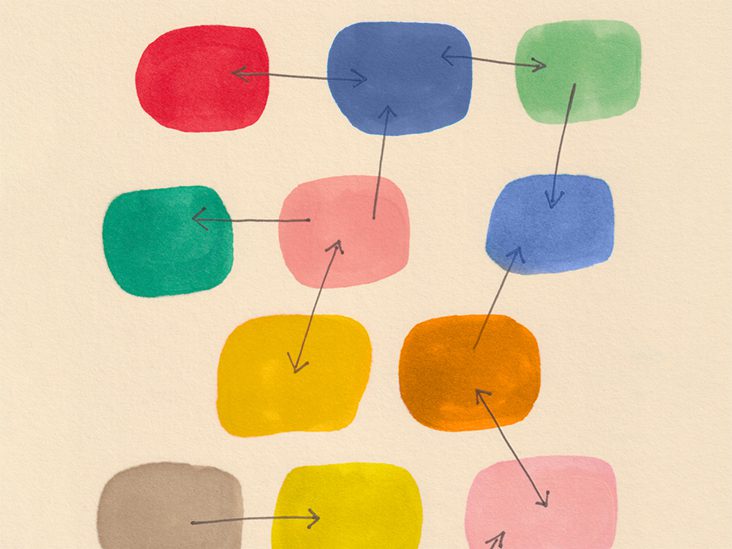Stress is an inevitable part of life, and it’s not always bad.
Stress is your body’s natural response to challenging or difficult experiences. It can be triggered by positive things, such as a tricky puzzle, or negative things, such as financial difficulty.
When you’re stressed, your body goes into “fight or flight mode” — a state where your body and mind are alert. When managed in a healthy way, stress can help you perform better.
A life stressor is any event or experience that causes stress. Some stressors can be small and relatively easy to manage, like a busy day at work or a small disagreement with a loved one. Other stressors can be harder to manage, like bereavement, divorce, or becoming severely ill.
Although everybody experiences stress differently, experts have identified the top life stressors. These common stressors are most likely to contribute to anxiety.
What are the most stressful life events one can experience? It’s difficult to quantify stress, especially because we all experience stress differently.
The Holmes-Rahe Stress Scale, also known as the Social Readjustment Rating Scale, is a list of stressful life events. First developed in 1967, this stress inventory attributes points to different life stressors. According to the scale, the more points you accumulate over a year, the more likely you are to experience health issues.
However, there are some criticisms of this scale. The way we cope with stressors depends on many factors, including your individual circumstances, your cultural context, and how much support you’re receiving from others.
Remember that the Holmes-Rahe Stress Scale was created to predict illness — the purpose is not to compare your stressors to others’ or to downplay the other stressors in your life.
Stress is subjective, and you might find it harder to cope with stressors that aren’t listed here than those that are. For example, you might find it harder to cope in the aftermath of a violent crime than with your divorce. And that’s okay.
1. Death of a spouse
When your life is deeply intertwined with a person, losing them can be agonizing and can even lead to decreased life expectancy. When you lose a spouse, you might also experience other changes — your lifestyle, daily routines, and living arrangements might change. These changes can make it harder to cope in the aftermath of your spouse’s death.
If you lost a spouse or life partner, give yourself time to grieve. It might be wise to join a support group for grief or speak with a therapist who offers bereavement counseling.
2. Divorce
Even if you know it’s for the best, divorce can be difficult to deal with, especially because it often requires you to readjust your routine and lifestyle. Legal difficulties, custody battles, and moving can compound this stress.
It’s common to feel lost after a divorce. You might feel a mixture of emotions, including relief, grief, and loneliness. But it’s possible to make it through to the other side.
3. Marital separation
Like divorce, marital separation can disrupt your life as you know it. Although it might be a wise choice, separating from your spouse can be deeply stressful. Even if you’re already undergoing marital counseling, you may want to see a therapist during this period.
4. Being incarcerated
Being in jail or prison is considered a major life stressor. Incarceration can be deeply traumatic, as it is a complete disruption of your current life and routine.
Incarcerated people might also face the following stressors:
- loneliness
- isolation
- lack of productive activities
- lack of access to medical treatment
- violence and abuse
- human rights violations
- lack of access to adequate nutrition
Formerly incarcerated people might experience post-traumatic stress disorder (PTSD)-like symptoms, often called post-incarceration syndrome.
5. Death of a close family member
The loss of a loved one is often difficult to comprehend and cope with. The death of a close family member, such as a sibling, parent, or child is considered one of the most stressful life events.
6. Major personal injury or illness
A major personal injury or illness can be a significant cause of distress. Becoming ill, whether temporarily or chronically, can disrupt your routine, lifestyle, and life plans.
Your illness or injury might require you to learn to adjust to a new way of living. Being diagnosed with a life-threatening illness can also be extremely scary. Expensive medical bills can compound the stress.
7. Marriage
Marriage is generally thought of as a happy occassion, but it can also be stressful. It might require a great deal of adjustment, especially if you didn’t co-habitate with your partner beforehand. The legal and financial admin can add to the stress.
8. Being fired or laid off from work
Losing your job can be a huge source of stress. This could cause financial anxiety — and for many people, a loss of identity. Many people identify with their jobs, and experience shame and depression when they lose that occupation.
After being fired, this stress can be compounded by financial worries and the emotional rollercoaster of job hunting.
9. Marital reconciliation
As with marriage, marital reconciliation is usually thought of as a positive thing. This might be so, but reconciling with your spouse after a separation can still require a lot of adjustment and thus be stressful.
10. Retirement
Although many of us look forward to our retirement, it can cause you to feel upheaved. When you’re used to working, it might be difficult to adjust to retirement. You might experience social isolation and a loss of purpose. You might also miss your routine and the excitement of working towards a goal.
“Retirement depression” is not uncommon, but it can be overcome. In fact, research from 2018 has found that retirement can improve your overall mental health and life satisfaction. Focus on filling your days with meaningful, enjoyable activities and make an effort to maintain healthy habits.
Source by psychcentral.com


